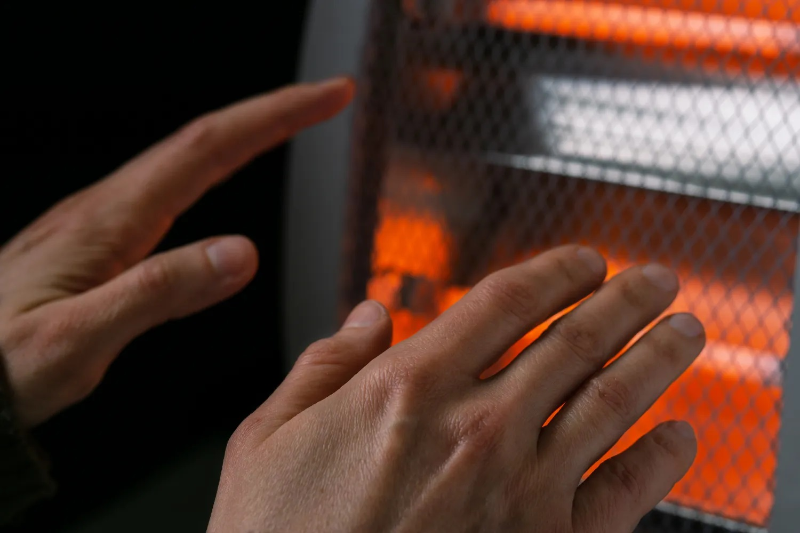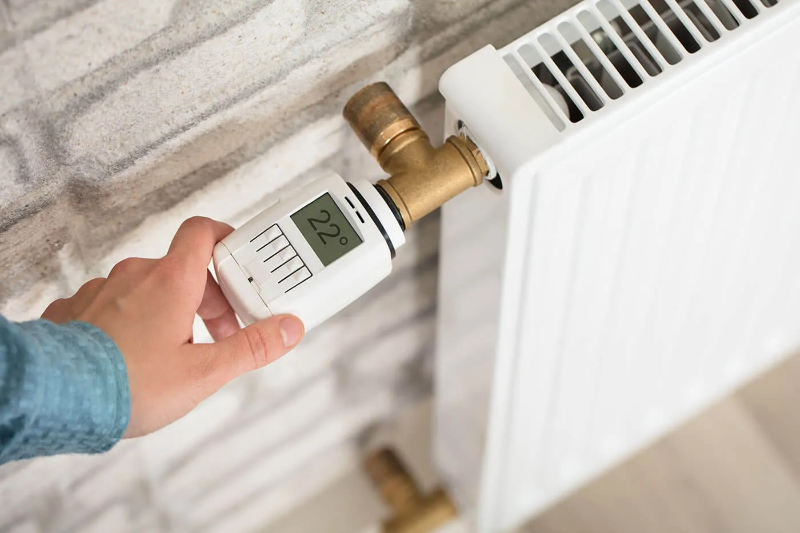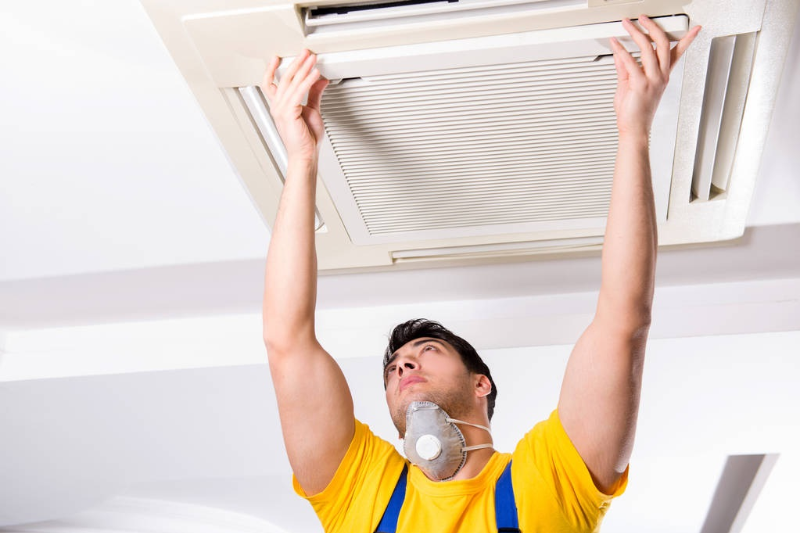Table Of Contents
Proper heating and cooling is crucial when creating a comfortable residential and commercial living environment. Whether you’re facing chilly winters or scorching summers, understanding the differences between gas heaters and air conditioning can help you make a decision that suits your needs and preferences.
In this article, we’ll explore the ins and outs of gas heaters and air conditioning systems, covering everything from functionality and efficiency to environmental impact and cost considerations. Read on to discover more about these versatile systems.
Gas Heaters
Let’s start by looking at gas heaters and what makes them popular for keeping your home warm and cosy.

How gas heaters work
Gas heaters rely on using natural gas or propane combustion to produce heat. They typically consist of a burner, a heat exchanger, and a distribution system. The burner ignites the gas, and the heat exchanger transfers the generated heat to the air, distributed throughout your home.
Efficiency and cost-effectiveness
Gas heaters are known for their efficiency and cost-effectiveness, making them an attractive option for many homeowners. Here are some factors to consider:
Energy efficiency ratings
Gas heaters have energy efficiency ratings that indicate their performance. Look for high-rated units that consume less fuel and reduce energy costs.
Long-term savings
Although gas heaters might have higher upfront costs for installation, their long-term savings can be significant. They tend to have lower operating costs, saving you money in the long run.
Types of gas heaters
Gas heaters come in various brands and types, each offering unique features and benefits:

Forced air systems
These heaters use blowers to distribute warm air throughout your home via ductwork. They provide quick and even heating, making them popular for larger spaces.
Radiant heaters
Radiant heaters emit infrared radiation, which directly heats objects and people nearby. They are ideal for localised heating and can be used in specific areas or as supplemental heat sources.
Convection heaters
Convection heaters circulate heated air through natural convection currents. They are effective at heating whole rooms and are available in different styles, such as wall-mounted or freestanding units.
Installation and maintenance
Proper installation and regular maintenance are vital for the safe and efficient operation of gas heaters:
Professional installation
Hiring a professional HVAC technician to install your gas heater is recommended. They will ensure the system is correctly installed, including venting and gas connections, to prevent any safety hazards or gas leaks.
Regular maintenance and safety checks
Gas heaters require periodic maintenance and safety checks to ensure optimal performance. This includes inspecting and cleaning the burners, checking for gas leaks, and verifying the condition of the heat exchanger.
Ventilation requirements
Gas heaters require proper ventilation to remove combustion byproducts and ensure indoor air quality. Adequate ventilation prevents the buildup of carbon monoxide, a potentially harmful gas.
Air Conditioning
Learn more about air conditioning systems and how they can keep you cool during those hot summer months.

How air conditioning works
Air conditioning systems utilise a refrigeration cycle to remove heat from indoor spaces and expel it outside. They consist of a compressor, a condenser, an expansion valve, and an evaporator. This cycle allows the system to cool and dehumidify the air before circulating it throughout your home.
Cooling efficiency and energy consumption
Efficiency and energy consumption are key considerations when evaluating air conditioning options. Here’s what you need to know:
Energy efficiency ratings
Air conditioning units are assigned energy efficiency ratings that indicate their performance. Look for highly-rated systems that consume less energy, lowering electricity bills.
Impact of climate on cooling efficiency
The climate in which you reside can affect the cooling efficiency of air conditioning systems. Sweltering and humid environments may require more powerful and energy-intensive units to maintain comfortable indoor temperatures.
Types of air conditioning systems
Air conditioning systems come in different types, each with its advantages and suitable applications:
Central air conditioning
Central air conditioning systems use ductwork to distribute cool air. They provide consistent and even cooling but require professional installation.
Split air conditioning
A split system comprises an indoor unit and an outdoor condenser. It is flexible, energy-efficient, and suitable for cooling specific zones or individual rooms.
Ductless mini-split systems
Ductless systems provide targeted cooling without requiring ductwork. They offer flexibility, energy efficiency, and easy installation, making them ideal for retrofitting older homes or adding cooling to specific areas.
Window units and portable air conditioners
Window units and portable ACs are self-contained units that can be installed in windows or moved around as needed. They are convenient for smaller spaces or areas where permanent installation is not feasible.
Reverse cycle air conditioners
A reverse cycle air conditioner, also known as a heat pump, is a highly energy-efficient system that provides both cooling and heating capabilities. It utilises a refrigeration cycle to transfer heat from one area to another, depending on whether you want to cool or heat a space.
Unlike traditional air conditioners that only cool the air, reverse-cycle air conditioners can reverse their refrigeration cycle and extract heat from the outside air. After that, they transfer it indoors during colder months.
Installation and maintenance
Proper installation and regular maintenance ensure the efficient operation and longevity of your air conditioning system:

Professional installation
It’s advisable to have a professional HVAC technician install your air conditioning system. They will properly size and position the unit, connect refrigerant lines, and ensure adequate ventilation.
Regular maintenance and filter cleaning
Regular maintenance is crucial to keep your air conditioning system running smoothly. This includes cleaning or air filter replacement, inspecting the condenser, and checking refrigerant levels.
Seasonal checks and tune-ups
Before each cooling season, schedule a professional tune-up to ensure your air conditioning system is in optimal condition. This can help identify any issues early on and improve energy efficiency.
Comparison and Considerations
Now that we have explored the specifics of gas heaters and air conditioning systems, let’s compare them and consider various factors influencing your decision-making process.
Heating efficiency
Winter performance of gas heaters
Gas heaters provide effective heating during cold winters. They offer reliable warmth and maintain comfortable indoor temperatures even in freezing conditions.
Cooling capabilities of air conditioning systems
While air conditioning systems are primarily designed for cooling, some models also include a heat pump function, allowing them to provide limited heating during mild winters. Reverse-cycle air conditioners provide both heating and cooling capabilities.
Cost analysis
Initial costs and installation expenses
Gas heaters generally require an upfront investment for installation, including the purchase of the unit, professional installation fees, and any necessary ductwork modifications. On the other hand, air conditioning systems also involve installation costs, which can vary depending on the type of system and your home’s existing infrastructure.
Long-term operating costs
When comparing long-term operating costs, gas heaters tend to be more cost-effective due to the low prices of natural gas or propane compared to electricity. However, energy-efficient air conditioning systems and careful usage practices can help mitigate high cooling costs.
Financial considerations for different climates
The climate you live in can influence your heating and cooling expenses. Areas with harsh winters might benefit more from efficient gas heaters, while regions with long summers could prioritise energy-efficient air conditioning.
Environmental impact
Carbon footprint comparison
Gas heaters produce carbon emissions through natural gas or propane combustion, contributing to climate change. Air conditioning systems have their environmental impact through energy consumption and refrigerant emissions. Consider the specific energy sources available in your area and their environmental implications.
Ozone depletion potential
Older air conditioning systems use refrigerants, contributing to ozone depletion. However, newer systems utilise environmentally friendly refrigerants with minimal ozone depletion potential. Consider the environmental impact of both options and prioritise systems with low ozone depletion potential.
Renewable energy integration
Both gas heaters and air conditioning systems can be integrated with renewable energy sources. Consider the availability and viability of renewable energy options in your area when evaluating their environmental impact.
Comfort and versatility
Heating efficiency in cold climates
Gas heaters are generally more effective at providing warmth in cold climates. They offer consistent and reliable heating throughout your home, ensuring your comfort during winter.
Cooling efficiency in hot and humid climates
Air conditioning systems excel at cooling indoor spaces, particularly in hot and humid climates. They effectively reduce both temperature and humidity levels, creating a comfortable environment.
Zoning and individual control
Both gas heaters and air conditioning systems can offer zoning capabilities, allowing you to control the temperature in different areas or rooms of your home independently. This flexibility can enhance comfort and energy efficiency.
Safety considerations
Gas heater safety precautions
Gas heaters require proper installation and regular maintenance to ensure safe operation. It’s essential to have carbon monoxide detectors installed, check for gas leaks, and perform routine inspections to minimise safety hazards.
Air conditioning hazards and maintenance
While air conditioning systems are generally safe, proper maintenance is still necessary. Regular inspections, cleaning, and filter replacements can prevent potential issues and ensure safe operation.
Take Control of Your Environment Today
Now that you understand the differences between gas heaters and air conditioning systems, it’s time to take control of your comfort and make an informed decision.
Remember, finding the perfect balance between gas heaters and air conditioning systems may involve a combination of both, depending on your needs and the climate in your area. Consult a professional to get the best option for your needs.



